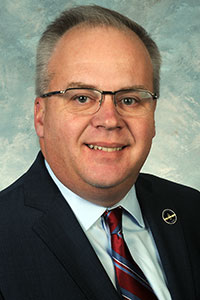By Jacqueline Pitts, The Bottom Line

FRANKFORT, Ky. — Legislation seeking to generate tax dollars by making it legal for Kentuckians to place bets on sporting events passed through the House Licensing and Occupations Committee meeting on Wednesday.
House Bill 137, sponsored by state Rep. Adam Koenig, R-Erlanger, would give people the ability to place bets in person with a tax of 10.25 percent and online with a 14.25 percent tax.
Koenig said it is estimated more than $150 billion is wagered illegally each year across the country and Kentucky could capture revenue if this bill passes.
As for how much new revenue the bill would generate, John Farris of Commonwealth Economics consulting firm told the committee his company estimates the state could bring in around $22.5 million each year if the bill is passed in its current form.
The revenue collected through the bill, Koenig said, would be spent on the cost of regulating wagering, addiction prevention services, and any additional funds going to the state’s woefully underfunded pension systems.
A similar bill was put forth by Koenig during the 2019 session. Since then, other states have passed similar bills and are collecting money from the new laws. Farris noted the longer Kentucky waits, more money will be lost.
Democratic state Rep. Al Gentry, D-Louisville, testified alongside Koenig in support of the bill and said he can’t see any good reasons to not pass the bill as it brings in new money that goes toward essential areas, bolsters the state’s signature horse racing industry with “in person” wagers, and allows the state to regulate the practice.
Other key aspects of the bill include the legalization of online poker with a 6.75% tax rate, removal of language prohibiting wagers on in-state teams, and more.
An initial licensing fee of $500,000 will be charged to those who will accept “in person” wagers followed by a $50,000 annual fee.
House Bill 137 now moves to the full House for a vote on the floor.





















Add Comment